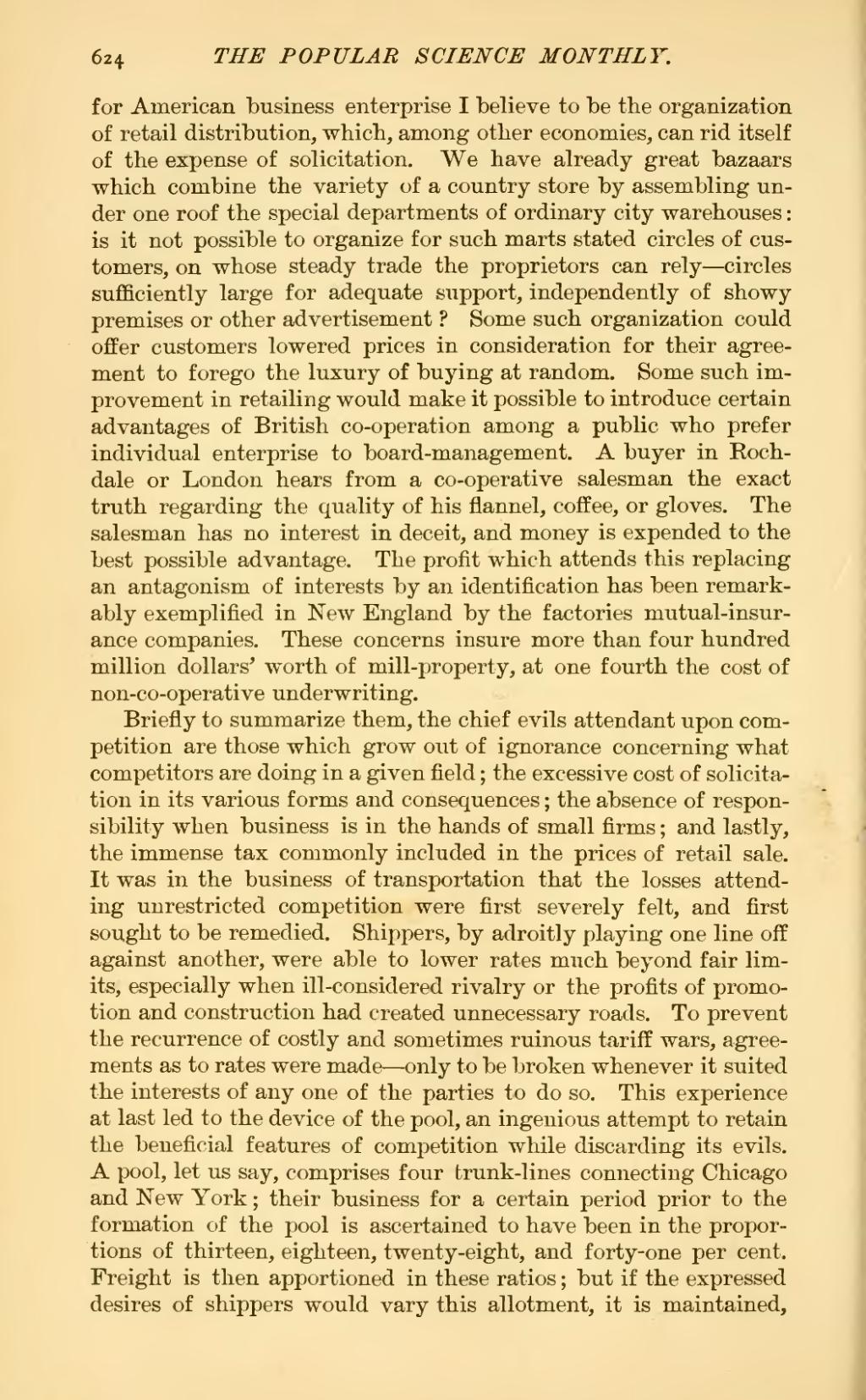for American business enterprise I believe to be the organization of retail distribution, which, among other economies, can rid itself of the expense of solicitation. We have already great bazaars which combine the variety of a country store by assembling under one roof the special departments of ordinary city warehouses: is it not possible to organize for such marts stated circles of customers, on whose steady trade the proprietors can rely—circles sufficiently large for adequate support, independently of showy premises or other advertisement? Some such organization could offer customers lowered prices in consideration for their agreement to forego the luxury of buying at random. Some such improvement in retailing would make it possible to introduce certain advantages of British co-operation among a public who prefer individual enterprise to board-management. A buyer in Rochdale or London hears from a co-operative salesman the exact truth regarding the quality of his flannel, coffee, or gloves. The salesman has no interest in deceit, and money is expended to the best possible advantage. The profit which attends this replacing an antagonism of interests by an identification has been remarkably exemplified in New England by the factories mutual-insurance companies. These concerns insure more than four hundred million dollars' worth of mill-property, at one fourth the cost of non-co-operative underwriting.
Briefly to summarize them, the chief evils attendant upon competition are those which grow out of ignorance concerning what competitors are doing in a given field; the excessive cost of solicitation in its various forms and consequences; the absence of responsibility when business is in the hands of small firms; and lastly, the immense tax commonly included in the prices of retail sale. It was in the business of transportation that the losses attending unrestricted competition were first severely felt, and first sought to be remedied. Shippers, by adroitly playing one line off against another, were able to lower rates much beyond fair limits, especially when ill-considered rivalry or the profits of promotion and construction had created unnecessary roads. To prevent the recurrence of costly and sometimes ruinous tariff wars, agreements as to rates were made—only to be broken whenever it suited the interests of any one of the parties to do so. This experience at last led to the device of the pool, an ingenious attempt to retain the beneficial features of competition while discarding its evils. A pool, let us say, comprises four trunk-lines connecting Chicago and New York; their business for a certain period prior to the formation of the pool is ascertained to have been in the proportions of thirteen, eighteen, twenty-eight, and forty-one per cent. Freight is then apportioned in these ratios; but if the expressed desires of shippers would vary this allotment, it is maintained.
